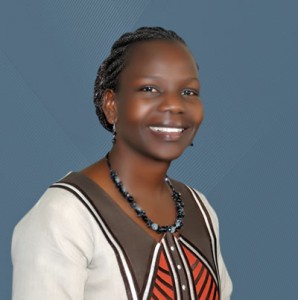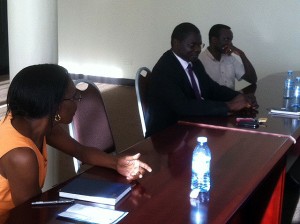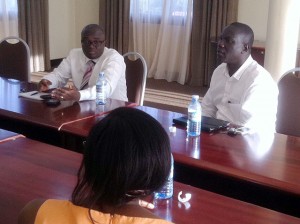No matter how many times I walk into a pediatric malaria ward, I cannot get used to the sight: the listless children, the mothers at once afraid and resigned, the staff laboring with so little to pull kids back into life. It is the reminder that health policy is not an abstract set of strategic objectives. It often means life or death.
The person in charge of health policy for the entire country of Uganda is the Honorable Minister of Health, Dr. Christine Ondoa. Hand-picked by the president, she is relatively new in her post; young, very bright, very dedicated, with an extensive background in malaria intervention and community health. Dr. Ondoa really wants to get something big done; she wants to eliminate malaria in Uganda. Unfortunately, there are many forces set against her. Undeterred, and with the support of the president, Dr. Ondoa has brought in major partners to design and implement a long-term strategy against malaria. These include both the Global Fund and Pilgrim Africa.
I had been scheduled to meet with the Honorable Minister last week, but an emergency cabinet meeting intervened. However, we learned Monday night that she could see the senior leadership team on Tuesday at 4 p.m. So William and I got on the road from Soroti at 6:30 in the morning, a day earlier than originally planned, to drive the seven long hours to Kampala.
The meeting takes place in one of the board rooms of the Protea Hotel, where Dr. Ondoa is already attending another conference. I had met her once before, at a Pilgrim fundraiser in Seattle, and she is as gracious as ever, asking me to sit at her right hand. After an opening prayer, and the usual ceremonious introductions, I am expected to speak first for the team. I am not as conversant with the current state of the partnership as I should be; I am frankly confused, but I don’t want to sound confused. Our plans had been to start in conjunction with World Malaria Day on April 25th, part of why I chose this window in my calendar months ago. But that launch date was suddenly postponed, and we haven’t heard much since. I understand we have been chosen as lead partners for the Northeast (the regions of Teso and Karamoja), but I am not really sure how much of our four-prong protocol we’re expected to implement, and I am aware we have serious limitations on our own capacity, caused by a sudden change the Global Fund made to the terms of their grant. I know there is, somewhere in the background, a lot of talk about bed nets, about 21.5 million of them, from different suppliers, enough for the entire country, but I am not sure how this is supposed to happen, or when, or what our role is to be in it. So when I open my mouth, it feels a little like walking off a plank.
In a sort of roundabout way, I convey our sincere willingness to help in any way we can, and gently suggest it would help us a lot to know what we might be doing and when. When I finish, I inwardly hope I haven’t been too direct; as I have suggested in previous posts, group discussion in Uganda has an intentionally polite and formal quality, and nothing would be more ill-mannered than an American-style “cut to the chase.” So when the Honorable Minister smiles broadly, I am relieved. She then responds. For the next half-hour she gives a lucid, transparent, detailed and sometimes moving description of the challenges she is facing, both within her ministry and from outside. Her intelligence, deep Christian faith, clarity of heart and determination are compelling. She asks above all for my prayers. And then she comes to the piece of information we have been waiting for.
The launch of the countrywide anti malaria campaign will occur on May 10th. In Soroti. The president himself will launch it. And our job will be to help distribute somewhere in the neighborhood of two-and-a-half million nets. With no additional funds or staff.
We have ten days to prepare.
All of a sudden, I am feeling really good about heading back to Pittsburgh on Thursday. A little guilty, maybe, but I’ll get over it.
Ten days. After raising an eyebrow in surprise, Hellen keeps making notes. Everyone on our Pilgrim team has the cool demeanor that one would expect of skilled professionals fielding a hot potato. Am I the only person in the room who thinks this is absolutely impossible? How can we pull this off? Whom can God possibly send to help us?
The others on the leadership team begin a strategy session that will last through dinner with the Ugandan Board and advisory council of Pilgrim, while Anthony and I see the Honorable Minister to her car. In parting, she again expresses her appreciation for my prayers and her belief that there is a great God behind us. Then she smiles broadly again, and her SUV with the Ugandan flag flying from the bumper rolls away. I count it a privilege to know this remarkable woman. I can’t think of anyone who deserves her title more.
But ten days? God help us.



